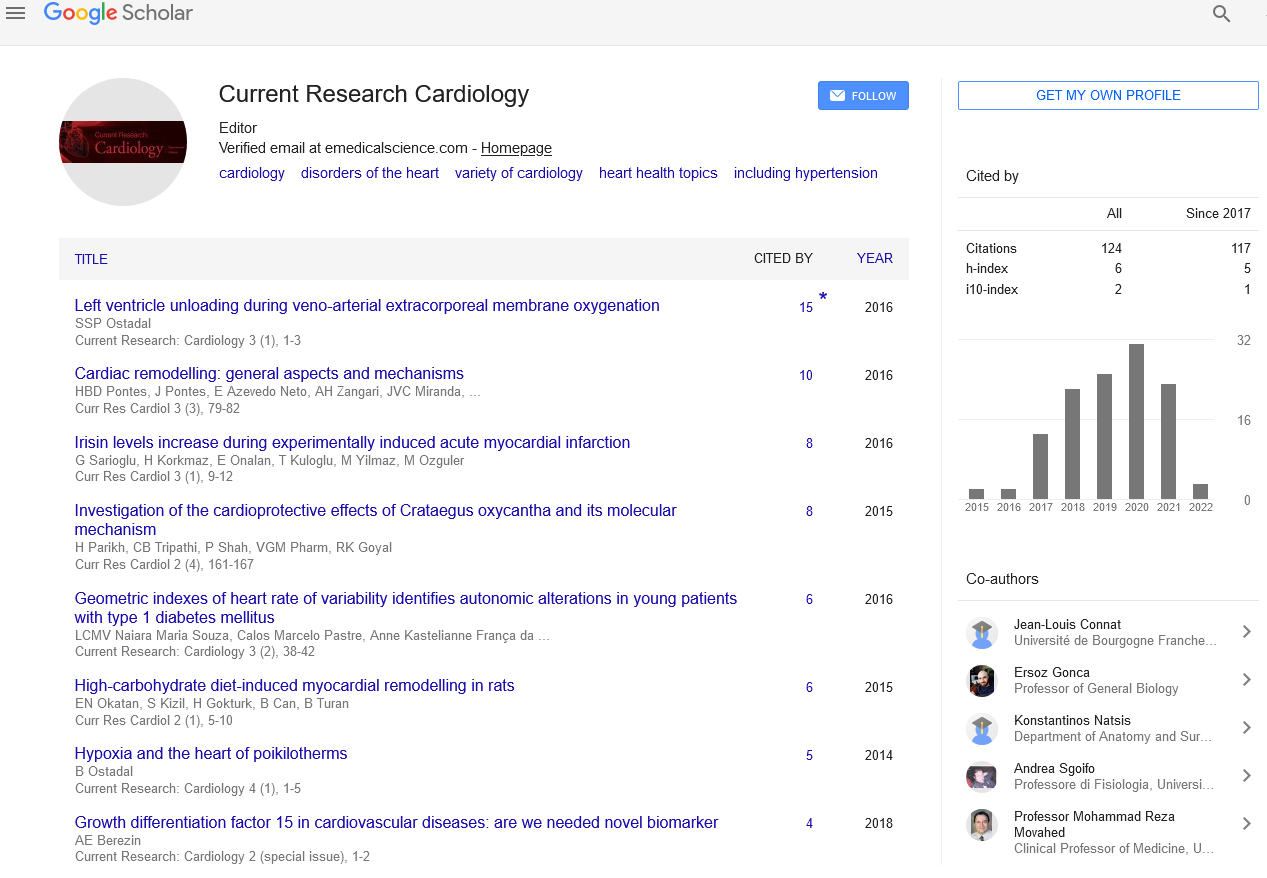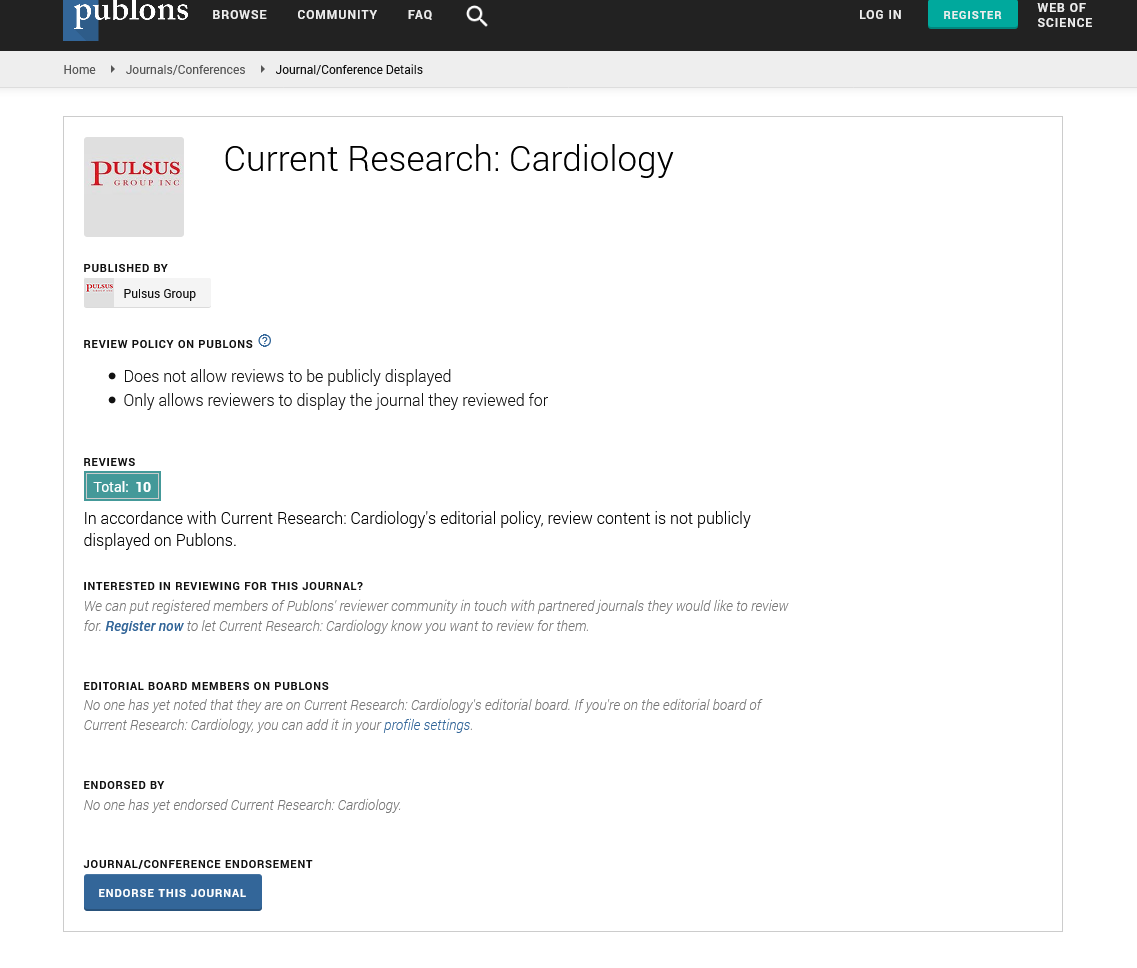
Sign up for email alert when new content gets added: Sign up
A systematic review of disease-causing mutations in ryanodine receptor 2 and calsequestrin 2
6th International Conference on Cardiology
June 29, 2023 | Webinar
Ibrahim Mohammad and Siobhan Loughna
University of Nottingham, UK
Posters & Accepted Abstracts: Curr Res Cardiol
Abstract :
Background: Mutations in RYR2 and CASQ2 can cause sudden cardiac death, but the genotype-phenotype correlation for these two genes has not been thoroughly researched. Therefore, the primary aim of this study is to investigate the genotype-phenotype correlation for RYR2 and CASQ2. The secondary aim is to compare the diseases caused by the mutations in RYR2 and CASQ2. Methods: The literature was searched from 1946 to October 2021. Search terms included ‘RYR2’, ‘CASQ2’, ‘Mutation’, ‘Heart’ and ‘Sarcoplasmic reticulum’. The mutation location, type of mutation, disease type and severity were documented, while mutations linked to the deamination of CpG dinucleotides were also identified. Where applicable, a chi-square test was carried out to evaluate the data. Results: The results of RYR2 in this study demonstrate that there is mutation clustering in the central domain, the channel domain, the helical domain 1, and the N-terminal domain. Importantly, mutations in helical domain 2 are more likely to cause severe phenotypes compared to the other domains. In addition, CpG dinucleotide linked mutations are more likely to occur in the central domain. No mutation clustering was found in CASQ2, although mutations in Domain III were more likely to lead to severe CPVT2. Conclusion: This study suggests that in RYR2 and CASQ2, a correlation exists between mutation location and disease outcome. In RYR2, CpG dinucleotide linked mutations are more common in some domains, suggesting that there is a high GC content in those domains.





